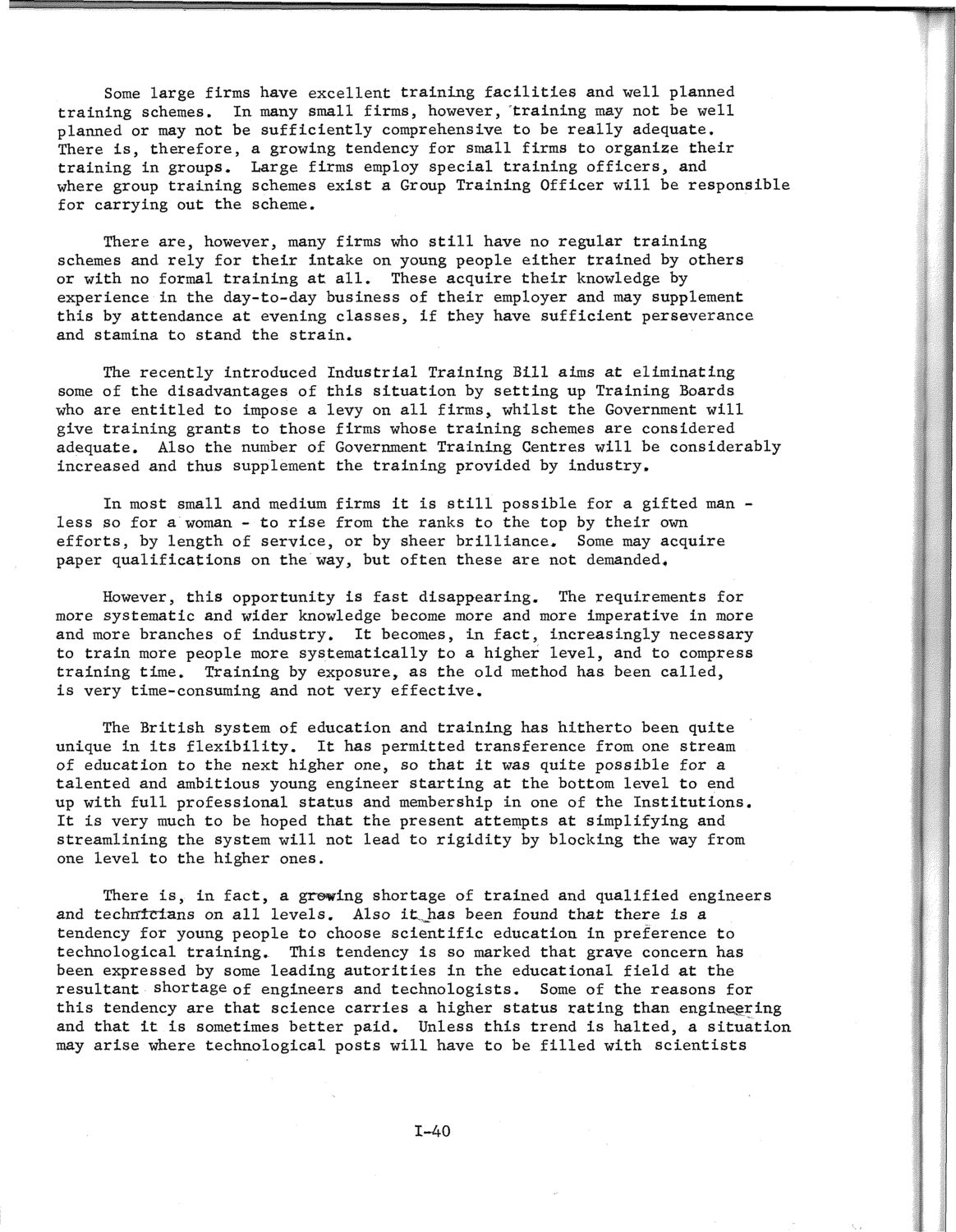| |
| |
Caption: SWE - Proceedings of the First International Conference of Women Engineers and Scientists
This is a reduced-resolution page image for fast online browsing.

EXTRACTED TEXT FROM PAGE:
Some large firms have excellent training facilities and well planned training schemes. In many small firms, however, "training may not be well planned or may not be sufficiently comprehensive to be really adequate. There is, therefore, a growing tendency for small firms to organize their training in groups. Large firms employ special training officers, and where group training schemes exist a Group Training Officer will be responsible for carrying out the scheme. There are, however, many firms who still have no regular training schemes and rely for their intake on young people either trained by others or with no formal training at all. These acquire their knowledge by experience in the day-to-day business of their employer and may supplement this by attendance at evening classes, if they have sufficient perseverance and stamina to stand the strain. The recently introduced Industrial Training Bill aims at eliminating some of the disadvantages of this situation by setting up Training Boards who are entitled to impose a levy on all firms> whilst the Government will give training grants to those firms whose training schemes are considered adequate. Also the number of Government Training Centres will be considerably increased and thus supplement the training provided by industry. In most small and medium firms it is still possible for a gifted man less so for a woman - to rise from the ranks to the top by their own efforts, by length of service, or by sheer brilliance. Some may acquire paper qualifications on the way, but often these are not demanded* However, this opportunity is fast disappearing. The requirements for more systematic and wider knowledge become more and more imperative in more and more branches of industry. It becomes, in fact, increasingly necessary to train more people more systematically to a higher level, and to compress training time. Training by exposure, as the old method has been called, is very time-consuming and not very effective. The British system of education and training has hitherto been quite unique in its flexibility. It has permitted transference from one stream of education to the next higher one, so that it was quite possible for a talented and ambitious young engineer starting at the bottom level to end up with full professional status and membership in one of the Institutions. It is very much to be hoped that the present attempts at simplifying and streamlining the system will not lead to rigidity by blocking the way from one level to the higher ones. There is, in fact, a growing shortage of trained and qualified engineers and technicians on all levels. Also it,Jias been found that there is a tendency for young people to choose scientific education in preference to technological training. This tendency is so marked that grave concern has been expressed by some leading autorities in the educational field at the resultant shortage of engineers and technologists. Some of the reasons for this tendency are that science carries a higher status rating than engineering and that it is sometimes better paid. Unless this trend is halted, a situation may arise where technological posts will have to be filled with scientists 1-40
| |